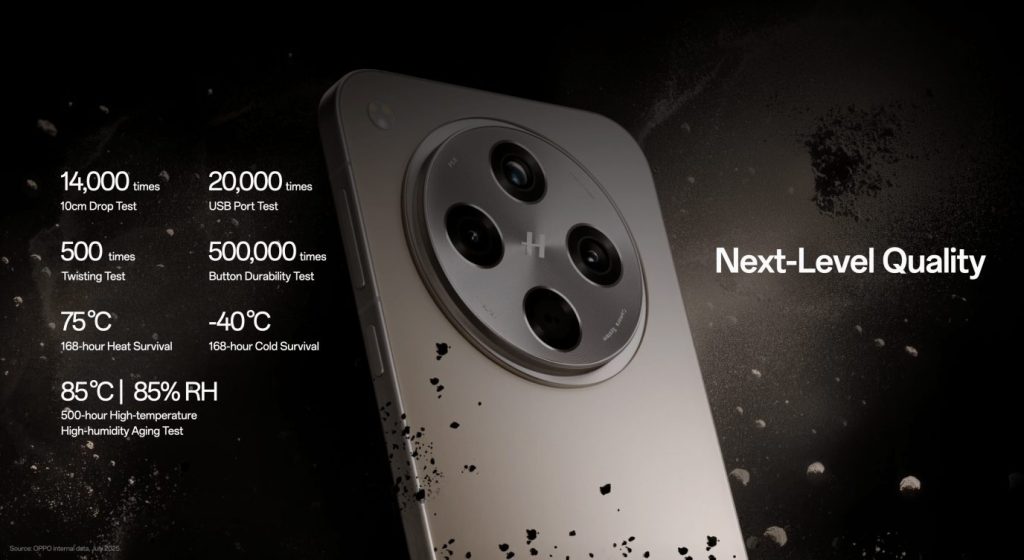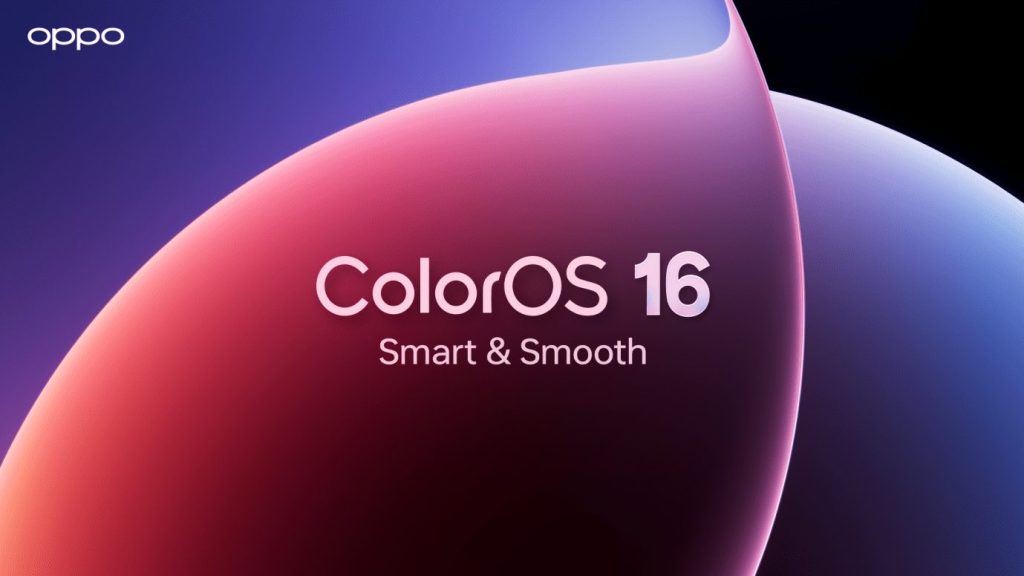OPPO has introduced Apex Guard, a new technology suite aimed at improving the quality of its smartphones in both hardware and software. The company says Apex Guard is designed to protect devices, make them last longer, and set a higher standard for the smartphone industry.
The announcement was made at OPPO’s global headquarters and R&D hub in Binhai Bay. The company explained that Apex Guard is part of its vision to focus on quality at every step, from early research to final product testing. OPPO says the goal is to meet real user needs, offering a worry-free experience and devices that continue to perform well over time.
Stronger Hardware for Everyday Use
Apex Guard introduces stronger materials and smarter design to protect devices from everyday accidents. OPPO has developed Ultra-High-Strength Steel and aerospace-grade AM04 aluminum to withstand drops, scratches, and water exposure. Structural solutions like Armour Shield add extra protection, aiming to keep phones safe beyond normal use.
The system also focuses on the battery. OPPO’s new Silicon-Carbon Battery uses a special spherical material to improve safety and extend battery life. The company says the battery can handle around 400 extra charge cycles, helping devices perform like new for a longer time.

Testing Beyond Industry Standards
OPPO says it goes further than most smartphone makers when it comes to testing. Devices are evaluated by international labs, including TÜV Rheinland, TÜV SÜD, and SGS. Phones undergo over 180 tests throughout development, from material testing to full-device assessments. OPPO also claims that its after-sales services go beyond typical industry standards, giving users additional assurance of quality.
Smoother Software for Daily Use
Apex Guard is not just about hardware. OPPO has also improved software to make devices feel faster and smoother. ColorOS 16 brings the new Luminous Rendering Engine, which uses a Unified Animation Architecture for smoother app launches and transitions. For heavy multitasking, the Chip-Level Dynamic Frame Sync in the Trinity Engine helps the system keep up in real time. Sensor-Offload technology reduces power use when recording high-quality video.

To maintain long-term performance, OPPO introduced Instant Refresh in ColorOS 16, which optimizes app permissions and reduces data fragmentation with one tap. Devices also undergo long-term aging tests, simulating up to 48, 60, or 72 months of use, to ensure they remain responsive over time.
OPPO has also created ways to measure software smoothness. The OPPO Smoothness Baseline Test evaluates performance in hundreds of real-life scenarios. The Parallel Animation Standard 6 Zero focuses on home screen animations and app launches, aiming for zero lag, zero freeze, zero mislaunch, and smooth transitions. OPPO says this standard applies across all devices, from entry-level A Series to flagship Find Series.
Binhai Bay Campus: The Heart of OPPO Quality
The Binhai Bay campus is central to OPPO’s quality push. The campus has advanced labs for materials, testing, power consumption, and communication. These labs help ensure devices are durable, smooth, and reliable. OPPO plans to expand the campus further, giving engineers access to better equipment and more resources to improve both hardware and software.
What This Means for Users
OPPO says Apex Guard is about giving users freedom and confidence in their devices. Stronger materials, longer-lasting batteries, and smoother software are all designed to make phones more reliable over time. The company claims this approach raises quality beyond everyday expectations, extends product lifespans, and sets higher standards for the industry.
While OPPO highlights these features as a major step forward, independent testing and user experience will ultimately determine how well Apex Guard performs in real life. Nevertheless, the announcement shows OPPO’s focus on combining hardware strength and software performance in a single system, aiming to make smartphones more durable, efficient, and enjoyable to use.











